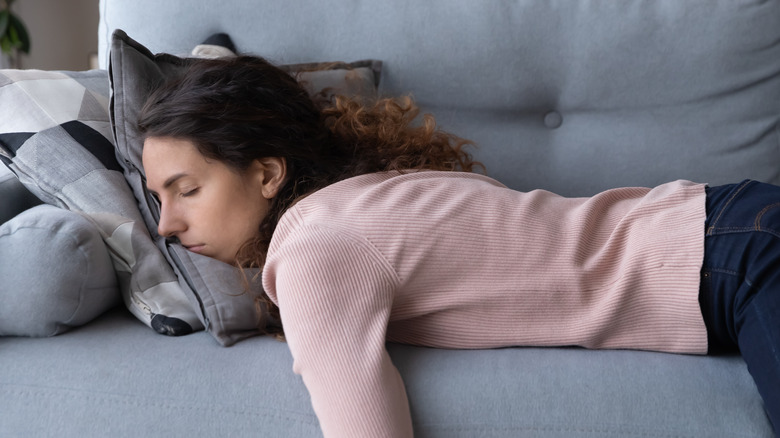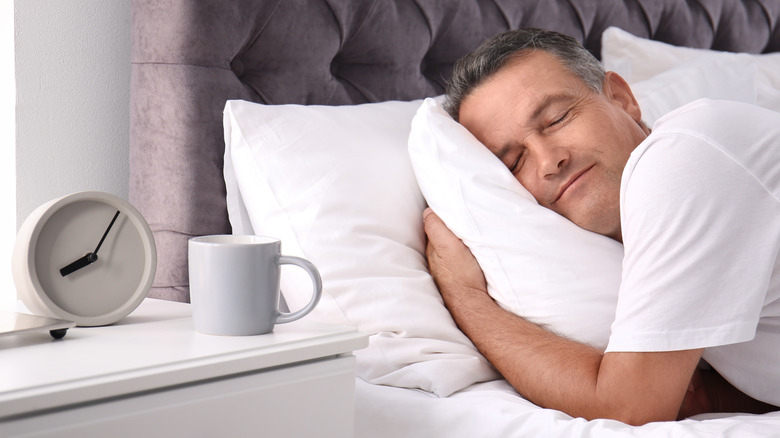Long Naps Might Be Bad For You. Here's Why
Too many of us are failing to catch enough zzz's consistently. As recommended by The American Academy of Sleep Medicine and the Sleep Research Society, adults between the ages of 18 to 60 need seven hours of sleep per night in order to maintain health and for the body to function as needed. But more than one-third of adults in the U.S. are missing the mark. "As a nation, we are not getting enough sleep," states Dr. Wayne Giles, director of the CDC's Division of Population Health (via U.S. Centers for Disease Control and Prevention). Without adequate sleep, we are more susceptible to health issues such as diabetes, heart disease, stroke, poor mental health, and more.
In order to fight fatigue, many people take time out for an afternoon nap and experience feeling more energetic, alert, and relaxed. Perhaps surprisingly, napping brings even more health benefits. "In addition to reducing sleepiness, naps have been shown to improve memory in the laboratory setting," Dr. Suzanne Bertisch, Associate Physician and Clinical Director of Behavioral Sleep Medicine at Brigham and Women's Hospital, told Harvard Health Publishing. Moreover, by decreasing drowsiness, catching a quick daytime snooze can lower risk for traffic-related automobile accidents.
On the flip side, a 2020 study reveals that naps that are too long may cause more harm than good, if you're someone who is sleeping the recommended number of hours or more per night.
Keep naps under one hour
It's widely believed that napping is harmless. A 2020 study cited in Science Daily reveals, however, that long naps for some people are risky. "A common view is that napping improves performance and counteracts the negative consequences of 'sleep debt' [but] our study challenges these widely held opinions," study author Dr. Zhe Pan of Guangzhou Medical University, China, states. The study found that long naps (lasting more than one hour) put nappers at a 30% greater risk for "all-cause death," and a 34% increase in risk for cardiovascular disease over non-nappers.
Past studies have examined possible links between napping and the risk for cardiovascular disease, but none looked at nightly sleep time in combination with nap length. Dr. Pan's 2020 research examined this relationship and found only participants who regularly slept six or more hours per night and took long naps during the day were at an increased risk for death.
For people not getting enough hours of sleep at night, "shorter naps (especially those less than 30 to 45 minutes) might improve heart health," Dr. Pan points out. While more research is still needed on the subject, the study suggests that keeping naps short and sweet may yield better health benefits overall. The best time to take your nap is in the best time to take your nap, so as to avoid disrupting your nightly sleep schedule (via Harvard Health Publishing). Finally, keeping naps around 20 minutes will stave off grogginess when it's time to wake up.


